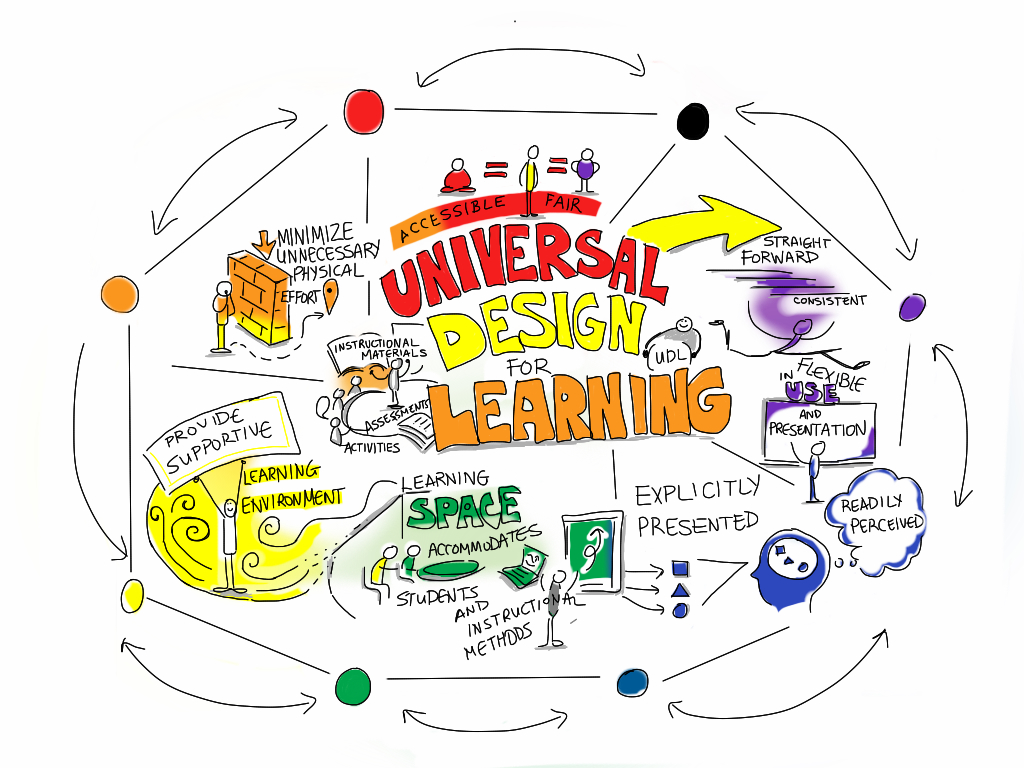Universal Design Learning
Universal Design for Learning (UDL) is a framework for planning and implementing approaches to learning and assessment that are designed to meet the needs of a diverse range of students. The principles around Universal Design for Learning originated from ideas of universal design in architecture, where designers focus on designing a particular space to meet a variety of needs.
Researchers determined that when principles of universal design were applied to the learning environment, it improved learning opportunities for all students. A course designed using UDL principles is more flexible and student-centred, enabling students to make choices or be more involved in the learning process by providing multiple ways to access content and express their learning.
UDL recognizes that the ways students acquire knowledge best and express what they know effectively can be very different from student to student. Instructors can present material using a range of mediums, provide options to express and assess student knowledge and understanding, and utilize various approaches to promote student engagement and motivation.
UDL Resources at JIBC
JIBC’s Center for Teaching, Learning & Innovation (CTLI) offered a series of faculty development workshops to expand the application of UDL Principles, specifically in the area of public safety.
The series consists of three 90-minute workshops with accompanying CC-licensed handbooks, slides and recordings:
- Workshop #1 – A Practical Guide to UDL
- Workshop #2 – UDL Strategies for Blended and Online Learning
- Workshop #3 – Assessment DesignL UDL Informed Perspectives & Examples





